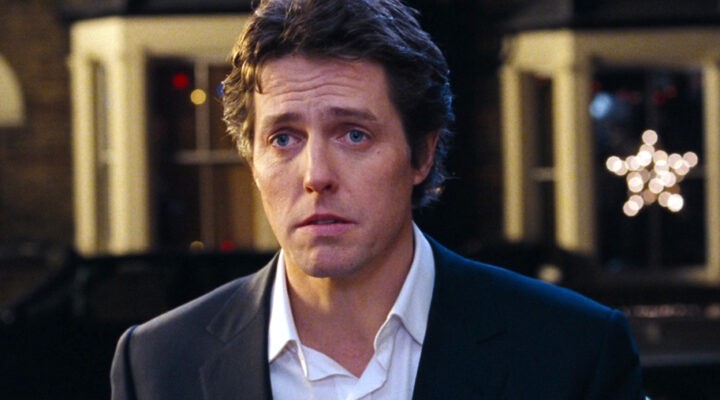Imagine the opening scene of Love Actually in Hugh Grant’s voice: “Whenever I get gloomy with the state of the world, I think about the arrivals gate at Heathrow Airport. General opinion’s starting to make out that we live in a world of hatred and greed, but I don’t see that. It seems to me that love is everywhere. Often, it’s not particularly dignified or newsworthy, but it’s always there — fathers and sons, mothers and daughters, husbands and wives, boyfriends, girlfriends, old friends. When the planes hit the Twin Towers, as far as I know, none of the phone calls from the people on board were messages of hate or revenge — they were all messages of love. If you look for it, I’ve got a sneaky feeling you’ll find that love actually is all around.”
In 2003 that speech sounded right, but now I am not as sure. Many of the messages people post are messages of hate and revenge. Some might want their last words to be something other than love.

Brett Younger
Never has it been so easy to say horrible things to so many. In the online world, people share insults you hope they never would say out loud.
John Oliver remarked, “YouTube comments are the most cogent written argument for why you should never learn how to read.”
Jimmy Kimmel has an ongoing bit called Mean Tweets where celebrities read mean tweets about themselves:
- “David Blaine looks like his voice is putting his face to sleep.”
- “Is there a kick starter campaign for Kevin James to never make another movie?”
- “If an alien landed here and demanded a famous person to eat, I would drive straight to Adam Sandler’s house with a net.”
TV commentators keep us upset with each other by amplifying partisan instincts. The more hatred they spread; the more people listen. They defend racism, sexism, homophobia, materialism and selfishness as though they are defensible choices.
Some give the impression that violence is acceptable, as though Jan. 6 was a pleasant family outing. Angry words lead to violent acts. Fox News is so obnoxious that Chris Wallace went looking for a place with less screaming. We are not as offended as we used to be. We expect people to be mean.
“Never has it been so easy to say horrible things to so many. In the online world, people share insults you hope they never would say out loud.”
Commuters in New York have gotten even more comfortable yelling at each other. The time between the light changing to green and a horn honking has decreased from two seconds to two-tenths of a second. We are way too much like Boston.
We want to think the toxicity that surrounds us does not affect us. Most of us are not tweeting vicious comments about Kamala Harris. We are not the people who do the name-calling, but it is in our heads. We think nasty comments. We think less of people whose politics are not as rational as our politics. We turn others into caricatures.
Our perspective becomes darker and more cynical. We are short-tempered with friends and family. We react to news that is not really news. We are stuck with negative, unhealthy thoughts. Anger seems reasonable.
The historian Thomas Cahill wrote: “I have come to believe there are really only two forces in the world, kindness and cruelty. A civilization can go either way, and no one is above the possibility of cruelty, nor is kindness impossible to anyone.”
Christianity is the invitation to turn away from the cruelty that surrounds us. We choose the way of selfishness that contains within it its own seeds of disappointment, or we choose the way that rejects selfishness in favor of love.
Christianity argues that love will overcome anger — even when there is evidence to the contrary. Volume does not reflect importance. Christianity teaches us that God is with people who are not usually heard — victims of COVID, victims of abuse and victims of bad choices. God is with hungry children and lonely co-workers. God is with everyone we do not bother to meet.
“We hear what is loud because we expect to hear what is loud.”
We hear what is loud because we expect to hear what is loud — and what is quiet often matters more. Christianity is in the quiet moments when God’s love is deeper than our anger: the silent moment when we feel God’s peace; the moment when we look at someone we have known for years and really see them; the moment when we hear the person we never have heard and think “I should listen to you.”
We can do quiet things with great love. Say “I love you” in an undignified way. Post a kind word. Think something nice about Kevin James. Count to 10 in the middle of an infuriating meeting. Honk less. Wave more.
Consider different opinions. Watch PBS for a while. Speak truth to power with love, like Desmond Tutu. Stand firm against prejudice, like Betty White. Give money to feed the hungry. Defend the voiceless. Pray for the bullies. If we look for it, we will find that God’s love actually is all around.
Brett Younger serves as senior minister at Plymouth Church in Brooklyn, N.Y.
Related articles:
Everything that’s wrong with the world explained in one brief column | Opinion by Mark Wingfield
Make the world a better place with kindness | Opinion by Phawnda Moore
Listen more, speak less, dispel anger with love | Opinion by Robert Sellers
It’s the most angry time of the year? | Opinion buy Robert P. Jones


